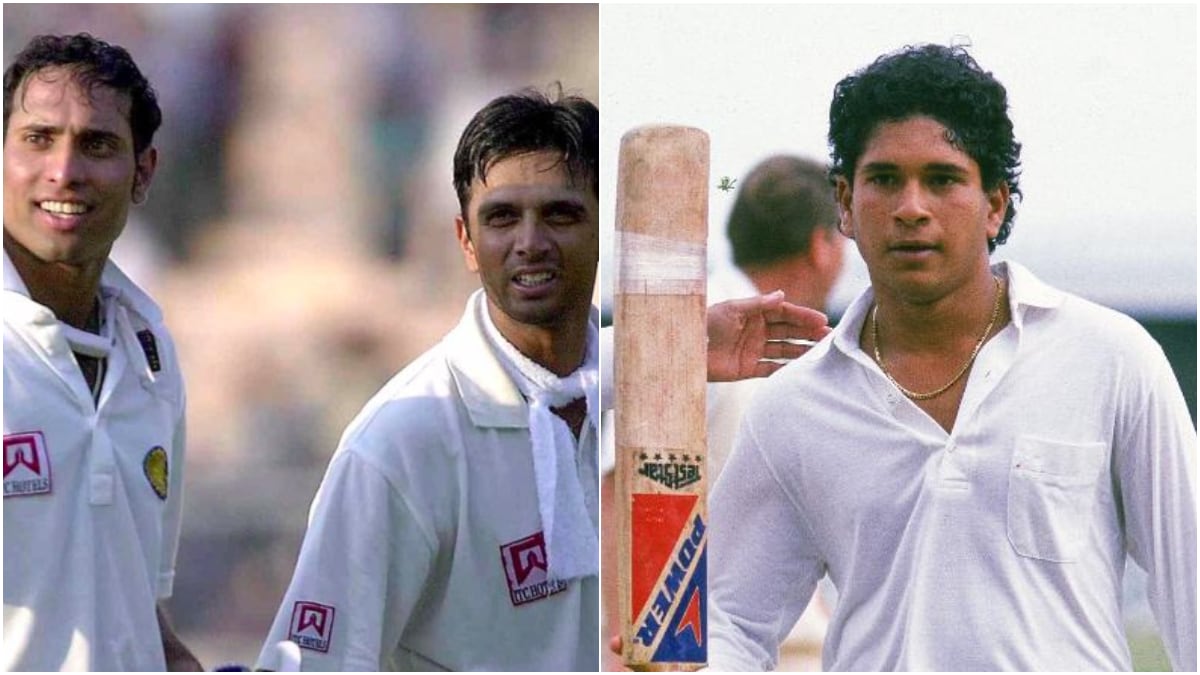

Indian cricket has a rich history filled with dramatic moments of resilience and fight, where victories and draws have been snatched from the jaws of defeat. Two such instances, the 2001 Eden Gardens Test against Australia and the 1990 Old Trafford Test against England, stand out as prime examples of India's never-say-die spirit.
The 2001 Kolkata Test against Australia is etched in cricketing folklore as one of the greatest comebacks in the history of the game. Steve Waugh's Australia, arguably the best team in the world at the time, were on a record-breaking 16-Test winning streak. After India lost the first Test in Mumbai by 10 wickets, the stage was set for a fierce battle at Eden Gardens. Australia batted first and piled up a formidable 445, with captain Steve Waugh scoring a century. Harbhajan Singh's hat-trick in that innings was the first ever by an Indian in Test cricket. In reply, India crumbled to 171 all out and were forced to follow on, trailing by a massive 274 runs.
At 232 for 4 in the second innings, still 42 runs behind Australia, India looked down and out. What followed was an extraordinary display of grit and determination by VVS Laxman and Rahul Dravid. The duo defied the Australian bowlers for an entire day, adding a record-breaking 376 runs for the fifth wicket. Laxman scored a magnificent 281, surpassing Sunil Gavaskar's record for the highest individual score by an Indian in Tests, while Dravid contributed a brilliant 180. India eventually declared their second innings at 657 for 7, setting Australia a target of 384. Harbhajan Singh then took 6 wickets in the second innings to complete a memorable victory. India became only the third team in Test history to win a match after following on. This epic win broke Australia’s 16-Test winning streak and is remembered for the exceptional batting of Laxman and Dravid, Harbhajan's match-winning bowling, and Sourav Ganguly’s aggressive captaincy.
In August 1990, India faced England at Old Trafford, Manchester. England scored 519 in their first innings. In response, India managed 432, with Mohammad Azharuddin scoring a brilliant 179. However, the highlight of the innings was a young Sachin Tendulkar's unbeaten 68. At the tender age of 17 years and 112 days, he became one of the youngest-everTest centurions. Facing a deficit of 87 runs, India needed to bat well to save the match. England declared their second innings at 320 for 4, setting India a target of 408. India ended the match at 343 for 6, securing a remarkable draw. Sanjay Manjrekar's 93 and Sachin Tendulkar's second innings century, 100 not out, were instrumental in India's fightback. This Test is remembered for Tendulkar's precocious talent and his crucial innings under pressure, which helped India avoid defeat.
More recently, in the ongoing Test series of 2025 against England, India has shown similar resilience. In the fourth Test at Old Trafford, after India were two down for none, Shubman Gill and KL Rahul's 188-run stand helped India recover. Gill completed his fourth century of the series, while Rahul was dismissed on 90. Their partnership ensured India crossed 3,000 runs in the series, a feat they achieved for the first time in England. This demonstrates India's fighting spirit and ability to bounce back from difficult situations.
These rescue acts, from Eden Gardens in 2001 to Old Trafford in 1990 and the ongoing series in 2025, showcase the resilience, determination, and talent that have become hallmarks of Indian cricket. They serve as a reminder that even in the face of adversity, the Indian team has the ability to rise to the occasion and script memorable moments that will be cherished by fans for generations to come.